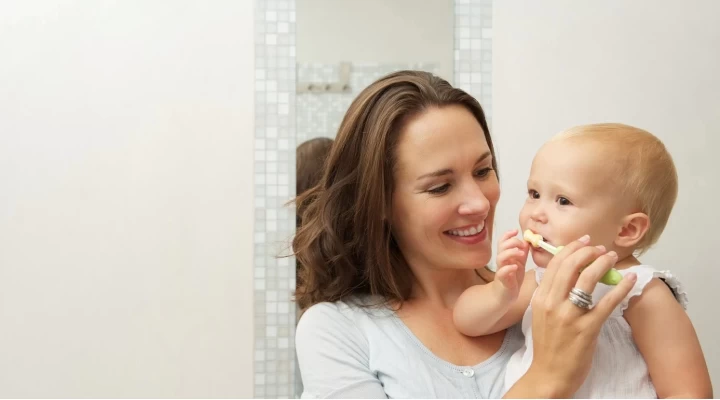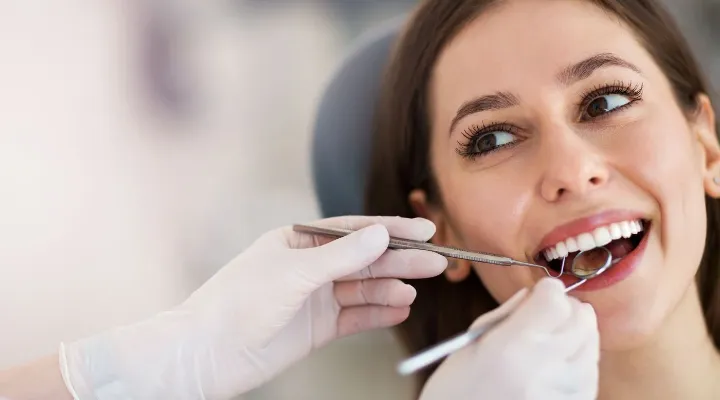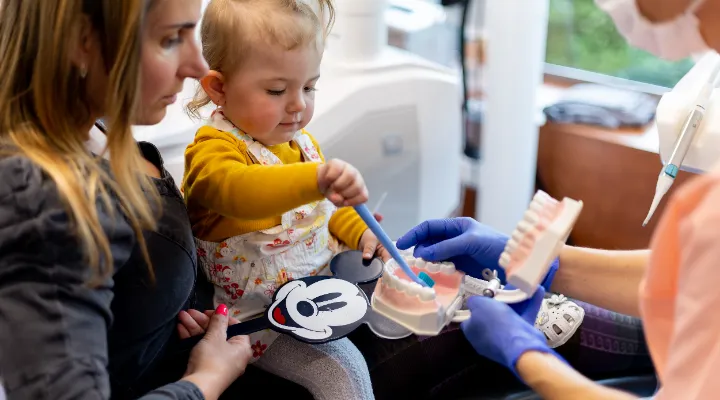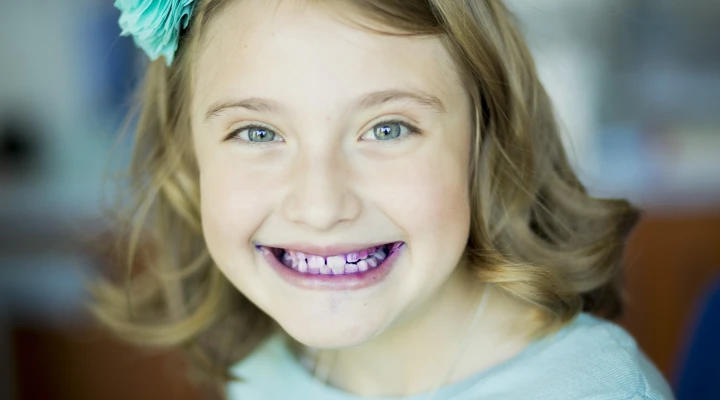Parents can, however, encourage their children to enjoy brushing their teeth by making sure they teach the right technique and by learning a few tricks to help motivate them. With the help of the dentists at the Dental Center, we have put together a two-part series on how to make dental hygiene a whole lot of fun. In the first part, we will show you the right way to brush your teeth.
When and how should you begin dental care?
You should start looking after your children’s teeth when the first milk teeth appear (usually around four months). It is very important to clean their teeth as gently as possible, so you should use a soft toothbrush at first. These can be placed on your finger and are designed especially for babies. At this stage, you don’t need to use toothpaste, just rub around the surface of the teeth with water. When a few more teeth come through, it’s time to get their first real toothbrush. Look for a round-headed, soft toothbrush with round bristles made especially for children. If you want to make tooth-brushing time more exciting, choose a cool toothbrush with a fun design to make the whole thing feel more like playtime. It’s a good idea to let your child use the toothbrush right from the start so they can get used to it, even if they don’t really know how to brush on their own. You should also choose your toothpaste carefully: whichever type you buy, make sure it has low fluoride content. If you give your baby nice-tasting toothpaste, they will be only too happy to eat it, so you need to make sure there isn’t a lot of fluoride ending up in their system. Toothpaste for adults has a higher fluoride content, and using too much of it can damage the enamel of the teeth.
Teach your children the right technique!
At first, it is the parents’ job to brush their children’s teeth. You should sit your child in your lap (if they’re a bit older, they can stand in front of you), and carefully support the head as you brush. Up to six years old, even if they do it themselves, you should still clean their teeth after they are done to make sure they are properly clean.
Use a pea-sized amount of toothpaste, and make sure they use the toothbrush properly. It’s important to teach your child as early as possible so that they have the movements fixed in their head. If your child is old enough, give them the toothbrush and practice the following techniques together:
- Hold the toothbrush at a 45-degree angle to the teeth
- Always brush the teeth with a circular movement, only the chewing surface needs to be brushed with a back-and-forth movement
- Always try to remove plaque from above the gums
- Also carefully rub the surface of the tongue
- The whole process should last two to three minutes
- We recommend brushing your teeth twice a day: morning and evening, the evening brush should be very thorough and you shouldn’t eat any food afterwards
We hope that we have helped lots of parents realize that it’s a good idea to teach your children how to brush their teeth properly and get them to enjoy this everyday activity. It really is important, as establishing a good dental hygiene routine can help prevent a lot of dental complications and illnesses such as tooth decay and infections. You should also remember that an important part of maintaining good dental hygiene is having regular check-ups. We recommend that your child’s first visit to the dentist should be before they get their first toothache, so they aren’t scared when they see the dentist for the first time. In the second part of our blog series, we will give you a few tips on how to motivate your children and how to make brushing their teeth more fun!
At our Dental Clinic, we offer a wide range of dental treatments in a friendly and playful environment.








